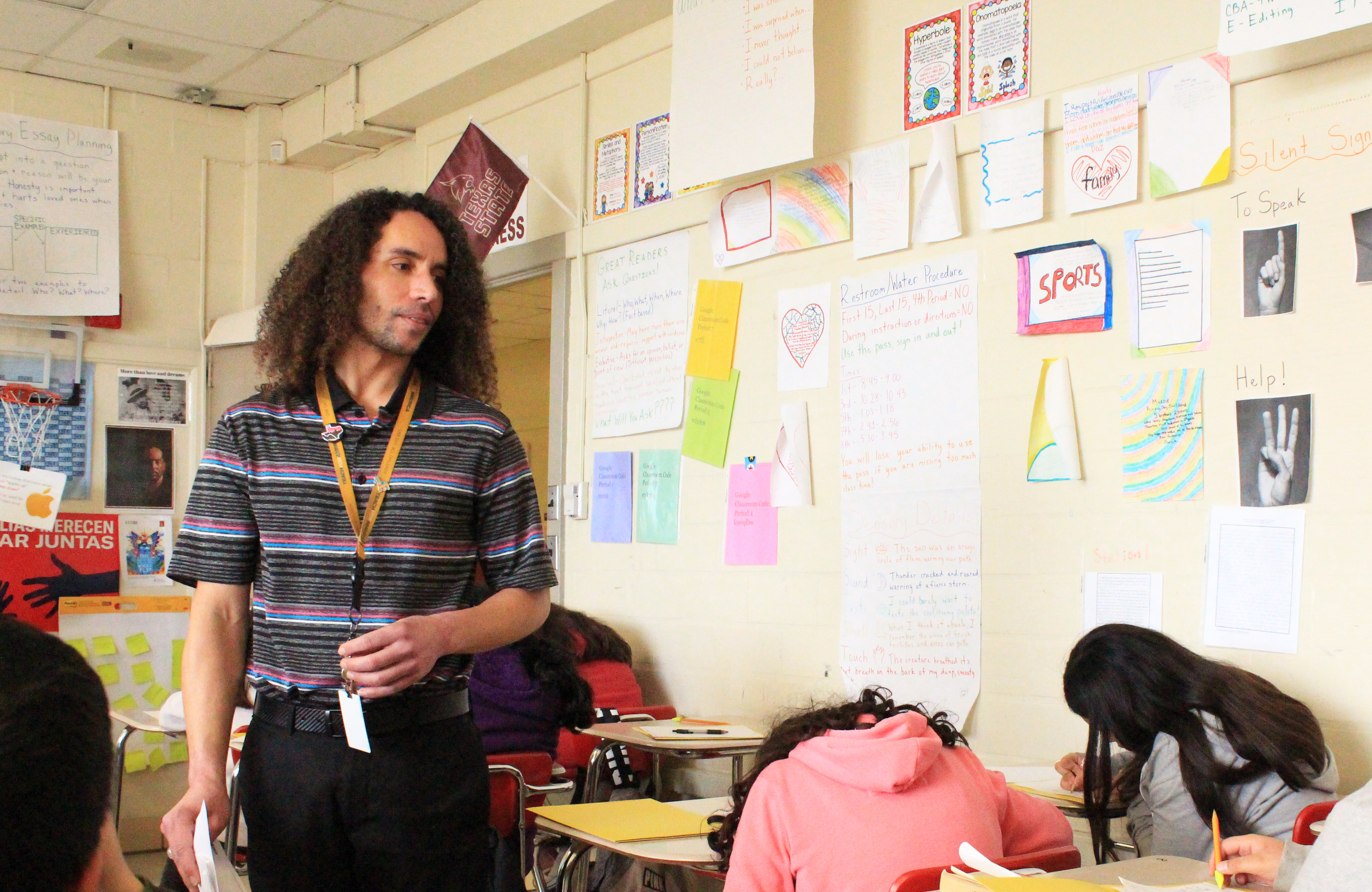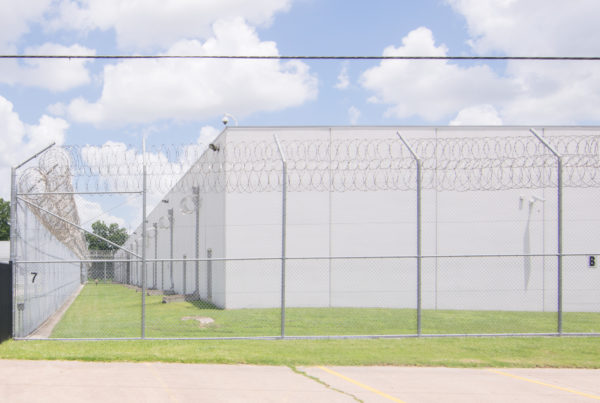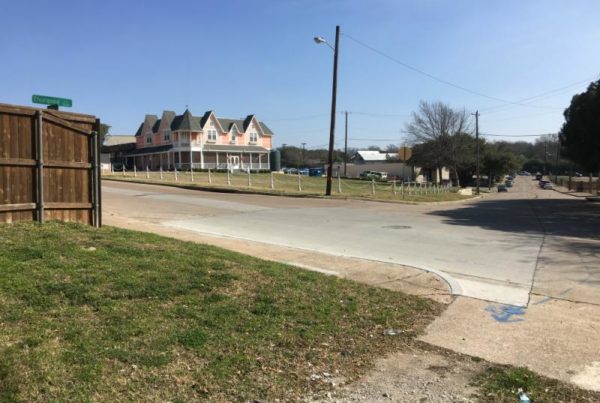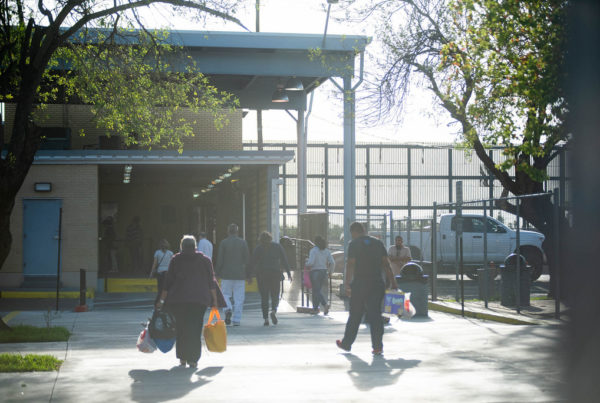As Texas lawmakers begin tackling one of this session’s top legislative priorities – school finance reform – a Texas Senate measure proposes that public-school teachers get a raise. How much money is on the table, and what difference would it make for Texas teachers living paycheck to paycheck? It depends on who you ask, and where you live.
To live in the tiny Texas town of Booker, people often need to wear many hats. That can be especially true for Booker’s public school teachers.
“Not only am I the special ed director, I am a special education teacher,” says Jenifer Lowery. She’s been teaching in the Booker Independent School District for about 15 years. Lowery’s been a Texas public school teacher for more than 30.
“I also teach low-level math classes, and then on top of all the extra other duties, like a class sponsor to help with fundraising. I’m a UIL academic coach. I keep the high school lunch detention kids,” Lowery says.
Booker, Texas, is located at the tip-top of the Texas Panhandle, eight hours away from the state capitol. The town’s population is about 1.500 and its school district has a little more than 400 students. The starting salary for full-time classroom teachers in Booker is around $35,000 a year.
“I’ve had to take a second job to help with my finances. I became an EMT. And I’ve done that for the last 10 years,” Lowery says.
Lowery says she’s lived paycheck to paycheck for most of her teaching career. She raised two daughters as a single mom, and racked up a lot of credit card and loan debt.
“I had the two in college at the same time and I had to take out many, many Parent PLUS loans and just in the last few years, I’m getting to where I’ve been able to pay those off,” she says.
Lowery is nearing the end of her teaching career – or at least trying to. At 59 years old, she says her pay has topped out at around $52,000 a year. But with the state’s teacher retirement system nearing a shortfall, and rising costs for the teacher health care plan, Lowery says her retirement plans are on hold right now.
“I’m one major hospitalization away from bankruptcy,” she says.
Texas’ top three lawmakers are making a concerted push to address some of the issues plaguing the state’s public school system and its teachers.
“This session we must pay our teachers more!,” Gov. Greg Abbott said during his State of the State address in January.
One measure proposed by Senate lawmakers would give an across-the-board, $5.000 raise to the state’s full-time classroom teachers.
“We’re putting teachers first this session. It’s been 20 years since they’ve had an across-the-board raise,” Lt. Gov. Dan Patrick said during his inauguration address last month.
According to the National Education Association, pay for Texas public school teachers is about middle-of-the-road, when compared to other states.
For people like Lowery, living in a rural area where the cost of living tends to be lower than it is in large metropolitan areas, the raise could make a bigger difference. Lowery says a $5,000 raise could be key to her being able to retire.
“It’s probably not a lot in the grand scheme of things, but it’s more than we’ve gotten in many, many, many years” she says.
The Senate measure says these raises will be paid for by the state. A Senate budget proposal brought forward last month includes billions of dollars in education spending, suggesting $3.7 billion go towards teacher pay raises. Some teacher’s groups are applauding the move.
Shannon Holmes, executive director for the Association of Texas Professional Educators, says he’s glad the legislature is thinking about investing in teacher salaries.
“I think that it shows that the teaching profession is valued here in the state of the Texas. In the last couple of sessions, maybe that hasn’t been the case,” Holmes says.
According to Lt. Gov. Patrick’s office, the $5.000 raise would go into effect the next school year, with another $5.000 added the following year, meaning each teacher will get a total of $10,000 more in the new budget. But some people, like Michael Lee, the director of the Texas Association of Rural Schools, remain skeptical about how future legislatures will fund the raises.
“So, in a way it’s kind of scary cause if they give the raise now and they don’t support it in two years, that’s gonna cause a lot of problems for rural schools,” Lee says.
Lee says his group would prefer lawmakers put that money toward raising the state’s minimum salary schedule for teachers and maintain that over time.
Other Texas public school teachers, like Chris Green, who teaches at Rhodes Middle School in the San Antonio Independent School District, are also worried the measure won’t ensure long-term raises for teachers.
“If it’s just… begin slowly over time raising teacher salaries to a point where it’s a profession that is more desirable for talented people coming out of college and more desirable for people who have been teaching for a long time to stay in, then I think that’s a start. But if it’s just like this one time, raise it this much, I don’t know how effective that’s going to be,” Green says.
Green has been teaching for a couple of years at San Antonio ISD. He says a competitive salary is just one part of making Texas teachers feel valued. He thinks on top of pay raises, teachers should be given more opportunities to develop professionally.
“I think it’s also about adding different types of pipeline for teachers to really engage the amazing level of leadership we have in our Texas schools,” Green says.
Jenifer Lowery in Booker, thinks the proposed raise is a great start to making Texas teachers feel compensated for the work she says they put into their jobs every day.
“We’re working hours before and hours after school and hours on the weekends,” Lowery says. “And so, I think that’s where we are. I think this $5.000 raise would make us feel appreciated and be a compensation for all that extra time we’ve put in.”
However, Lowery has some concerns too. She’s uncertain if the proposed raise would even pay off, especially if her health care premiums continue to skyrocket and her cost of living creeps up. So, as the focus shifts to Texas educators this session, what lawmakers do about teacher pay is just one of the many debates Lowery will be keeping an eye on.
The Senate Finance Committee will hear public testimony on the teacher pay raise proposal next Monday.
















